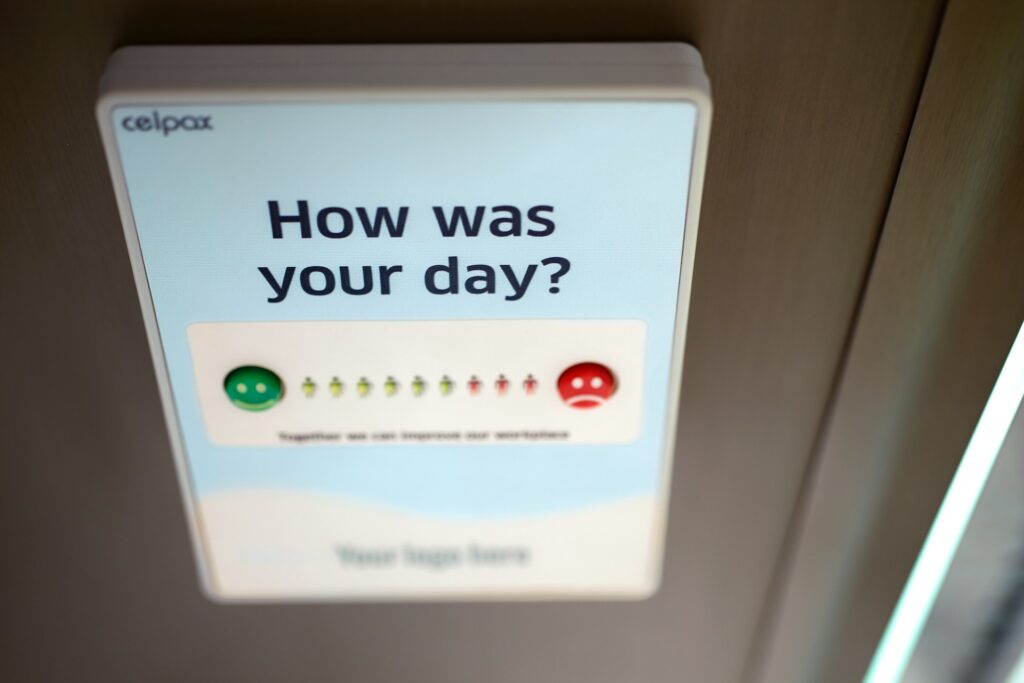How To Maintain Tenant Loyalty and Satisfaction

The current real estate landscape has been shaped by economic shifts, leading to challenges in maintaining tenant loyalty and satisfaction. Landlords and property managers must build strong relationships and deliver quality service to keep tenants happy and rental properties filled.
Emphasizing personalized approaches—such as tailored communication, incentives, and amenities—strengthens long-term relationships and benefits your rental business. By consistently focusing on tenant needs and engagement, you foster a stable environment that attracts and retains tenants, promoting sustainable success even in uncertain times.
Key Takeaways
- Learn how to address tenant needs for stronger loyalty.
- Engage with tenants using incentives and effective communication.
- Track key outcomes to maintain long-term tenant satisfaction.
Understand Your Current Tenants

To build trust and foster a stronger landlord-tenant relationship, start by closely reviewing your tenants’ rent payment history, feedback, and overall engagement with your rental property. This approach helps you identify patterns that may affect turnover costs or rental income. Analyze lease agreements to note any unique needs, privacy concerns, or requests for specific property amenities.
Regularly check in with your tenants using short surveys, direct feedback, or digital communication. Pay attention to what amenities or services matter most—parking, laundry facilities, or quiet hours can make a significant difference.
Consider tracking the following in a simple table:
| Data to Track | Benefit |
|---|---|
| Rent payment history | Identify reliable tenants |
| Amenity requests | Improve property offerings |
| Maintenance feedback | Address recurring issues |
| Lease preferences | Tailor lease agreements |
Proactive attention like this positions your rental business well in the current rental market and improves tenant satisfaction. Learn more about methods by reading this post on maintaining tenant loyalty and satisfaction.
Engage With Tenants in Meaningful Ways
Build strong tenant relationships by using clear and effective communication. When you understand your tenants’ preferences for communication channels—whether it’s email, text, social media, or newsletters—you can reach them in the most convenient way. Consistent, open communication forms a core part of tenant retention strategies, fostering trust and making tenants feel valued.
Personalize your messages and address tenants by name. Tenants appreciate content that speaks directly to their needs, such as updates on property developments, reminders about community events, or information about cost-saving opportunities. Tailoring messages based on tenant feedback significantly enhances the overall tenant experience.
Engagement involves listening as well as sending updates. Create easy opportunities for tenants to share their preferences and needs. Host community events or virtual meetups to build a sense of community, increase tenant engagement, and improve satisfaction.
Features that support engagement include:
| Method | Benefit |
|---|---|
| Emails/Texts | Quick updates, easy reference |
| Social Media | Community building, real-time interaction |
| Surveys | Gather tenant feedback |
| Events | Strengthen community connections |
Responsive customer service and meaningful engagement efforts help retain tenants, demonstrate commitment, and reinforce a positive reputation.
Offer Incentives and Benefits To Boost Tenant Loyalty
Providing attractive incentives and benefits directly impacts tenant satisfaction and loyalty. When you introduce rent discounts, special promotions, or offer lease renewal incentives, you show tenants that you value their commitment and encourage them to sign longer lease agreements.
Effective incentives for tenants include:
- Monetary rewards: such as rent discounts or gift cards
- Upgraded amenities: on-site fitness centers, pools, or communal lounges
- Complimentary services: landscaping, house cleaning, or snow removal
- Flexible rent payment options: to suit different financial situations
Implementing structured tenant loyalty programs or frequent renter programs helps you target long-term tenants and foster a sense of community within your properties. These programs reward tenants for staying longer or referring others, turning more residents into brand advocates.
A quick comparison of potential benefits:
| Incentive Type | Impact on Tenants |
|---|---|
| Rent Discounts | Lowers monthly expenses |
| Upgraded Amenities | Enhances living experience |
| Complimentary Services | Simplifies daily routines |
| Loyalty Programs | Encourages lease renewal |
Competitive amenities and thoughtful rewards support retention and help keep your properties attractive in today’s market.
Monitor Results On a Regular Basis

Property managers must routinely monitor results to minimize tenant turnover and proactively address maintenance issues. By consistently gathering tenant feedback through surveys, ratings, and direct communication, you gain actionable insights into your property management performance and tenant satisfaction.
A well-structured feedback loop helps you identify common maintenance requests, highlight repair needs, and measure response times. Prompt maintenance and repairs keep tenants satisfied and encourage long-term loyalty. Set up systems for regular monitoring, such as monthly digital surveys or quarterly rating requests, to ensure you stay updated on tenant concerns and property conditions.
Key Steps for Monitoring Results:
- Implement tenant feedback tools (online forms, surveys).
- Regularly review reports for trends in maintenance and repairs.
- Track completion times for maintenance requests.
- Communicate directly with tenants via email, text, or social media.
| Task | Recommended Frequency | Who Should Lead |
|---|---|---|
| Tenant Surveys | Quarterly | Property Manager |
| Maintenance Checks | Monthly | Maintenance Staff |
| Repair Completion Review | Weekly | Maintenance Supervisor |
| Direct Feedback Review | Ongoing | Property Manager |
Reliable handymen and maintenance teams ensure that repairs happen efficiently. When you adopt proactive property maintenance tactics, such as regular preventative maintenance, you reduce urgent repair calls and support tenant satisfaction.
Staying attentive to routine feedback lets you anticipate issues before they escalate, providing a better tenant experience. By acting on this data, you avoid small complaints turning into significant problems, further minimizing turnover.
Frequently Asked Questions
What strategies can property managers use to enhance tenant retention?
To enhance tenant retention, prioritize clear communication, fast maintenance responses, and consistent property care. Implement tenant loyalty programs, hold community events, and offer incentives for lease renewals to create a sense of community and value for residents. For more details, read about effective ways to boost tenant loyalty in rental properties.
What best practices should landlords follow to address and resolve tenant complaints?
Landlords should listen actively to tenants, maintain respectful and professional dialogue, and document complaints for follow-up. Establish clear processes and timelines for addressing issues, and provide regular updates to demonstrate your commitment to resolving concerns promptly.
How can regular property maintenance impact renter happiness?
Regular property maintenance significantly increases renter happiness by preventing minor issues from becoming major problems. When tenants see that you care for their living environment and address repairs quickly, they develop trust and satisfaction in your management. Prompt maintenance also minimizes disruptions and ensures a safer, more pleasant living space.
What types of tenant amenities have been shown to increase resident contentment?
Amenities that boost resident satisfaction include:
- High-speed internet access
- Pet-friendly policies
- Modern appliances and in-unit laundry
- Fitness centers and communal spaces
- Secure package delivery areas
How do landlord-tenant communication practices affect tenant loyalty?
Consistent, transparent, and respectful communication builds stronger landlord-tenant relationships. When you keep tenants informed about policies, updates, and changes, you reduce misunderstandings and make residents feel more engaged and respected. Regular check-ins and clear information channels also encourage tenants to renew their leases.
What role does responsiveness to maintenance requests play in tenant satisfaction?
Your responsiveness to maintenance requests plays a crucial role in tenant satisfaction. Swift, reliable handling of repairs demonstrates that you value your tenants’ comfort and safety and reduces tenant complaints and potential turnover. Studies show that tenants are much more likely to remain loyal when they trust their landlord to address issues promptly. See more about improving tenant satisfaction with timely maintenance.
Ready to maximize your rental property’s true potential?
Never miss a rent increase opportunity again! Get real-time alerts and market updates from RentCast.io and save 20% with promo code BIGDEAL.

Discover the secret to stress-free property management with How To Find & Keep Great Tenants. This essential guide reveals proven strategies for attracting high-quality renters and creating long-term, mutually beneficial relationships.
But finding great tenants is only half the battle. Uncover the art of tenant retention, from creating a positive living environment to addressing concerns promptly and professionally.
With this book, you’ll transform your rental property into a sought-after home that tenants won’t want to leave. Minimize vacancies, reduce turnover costs, and maximize your investment’s potential by mastering the skills to find and keep exceptional tenants.
Get your copy now from your favorite bookseller:
- Amazon (non-Premium Edition, does not include Investment Real Estate Analysis: A Case Study, available in paperback only)
- Books2Read for Apple, Barnes & Noble, Kobo, Scribed, and 8 more sellers with both eBook and paperback options available (Premium Edition)
- Payhip as a downloadable PDF (Premium Edition)
Ready to take your business to the next level?
- Subscribe to our newsletter
- Visit the learning center
- Learn more about our consulting services